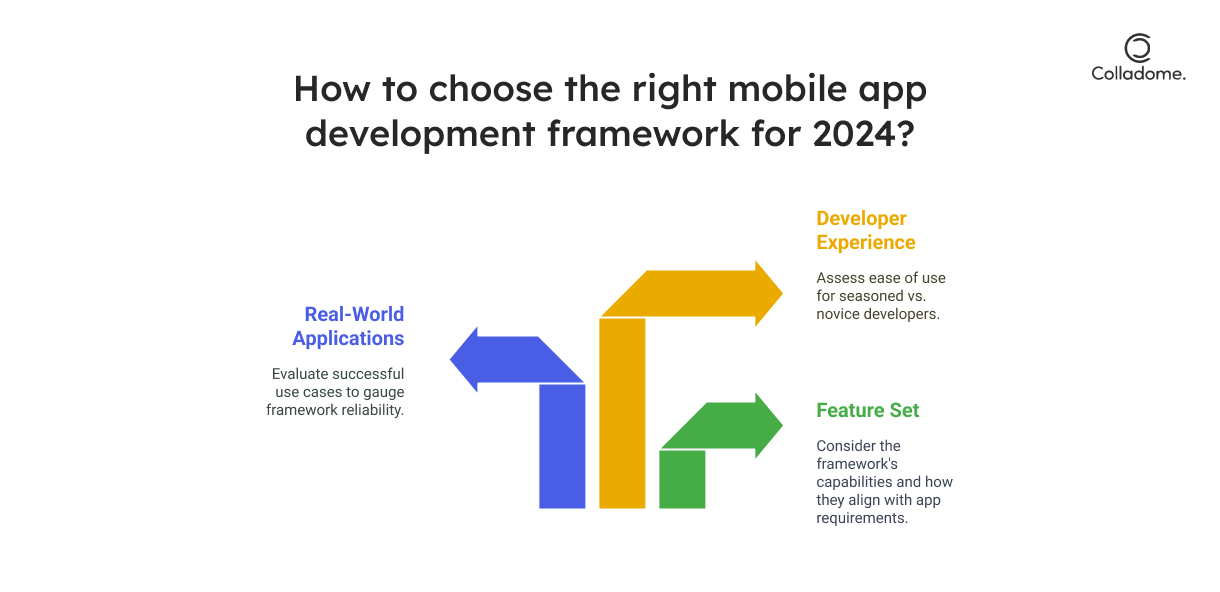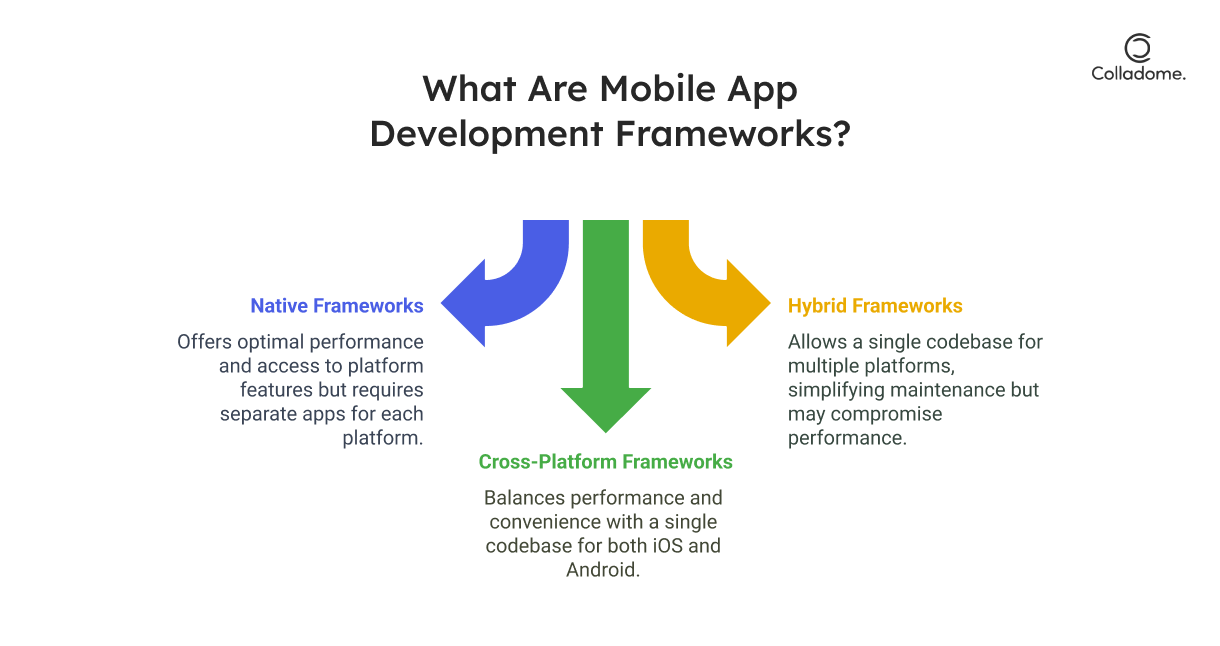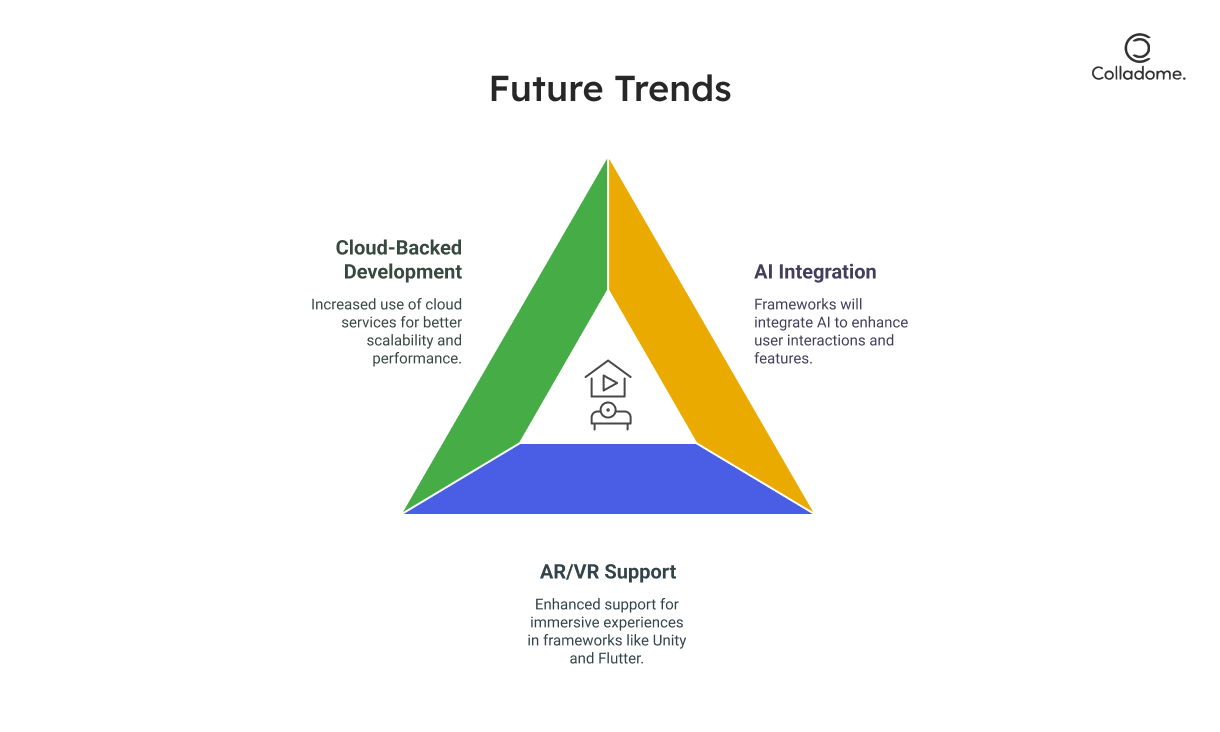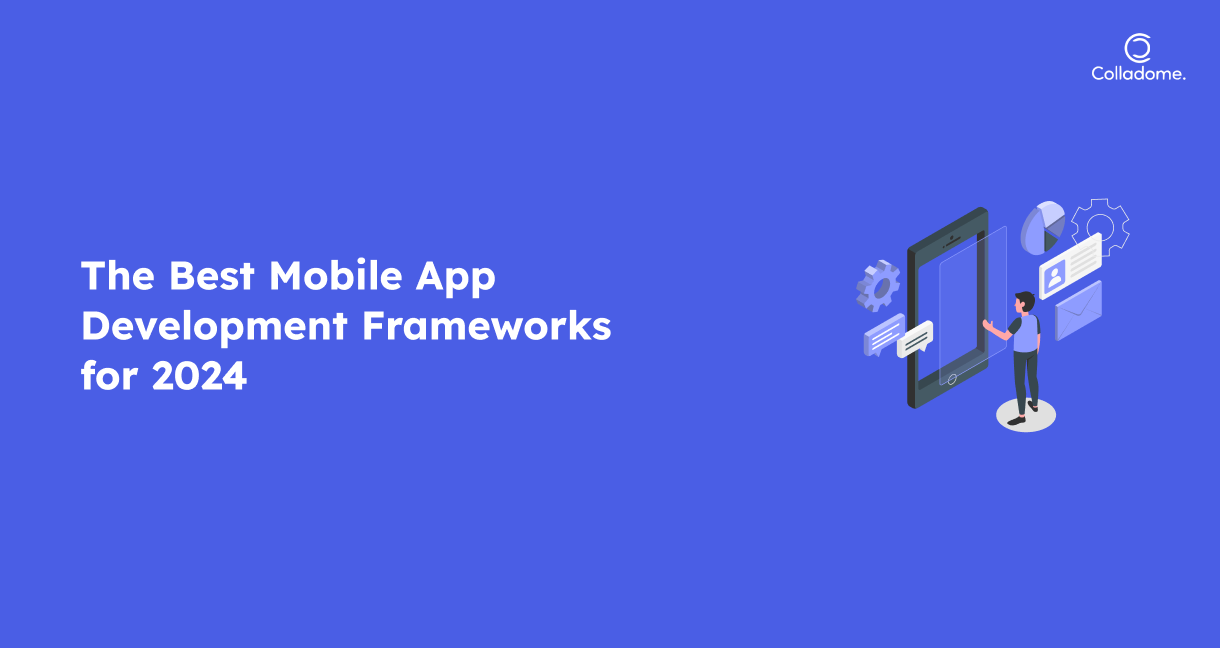Hello, tech enthusiasts and app dreamers! Whether you’re building the next Instagram or a productivity app to keep us all sane, there’s one question you need to answer first: Which framework should you use for mobile app development?

Let’s dive deep into the best mobile app development frameworks for 2024, explore what makes them tick, and how they can help you build apps that wow users across platforms. Oh, and don’t worry—we’ll keep this fun, packed with real-world examples, data, and a few tables for easy digestion.
What Are Mobile App Development Frameworks?

Before we get into the nitty-gritty, let’s clear up the basics. A mobile app development framework is like a toolkit for developers. It provides libraries, pre-written code, and components that make building mobile apps faster and more efficient.
When it comes to building mobile apps, there are three main types of frameworks you can choose from. Let’s break them down in a way that’s easy to digest, and figure out which one works best for you.
1. Native Frameworks – The Platform-Specific Masters
Native frameworks are designed specifically for one platform. For example, if you’re building an iOS app, you’ll use Swift or Objective-C and work with Apple’s development tools. If it’s Android, you’ll go for Kotlin or Java. The beauty of native frameworks is that they let you fully tap into the power and features of the platform. You get the best performance and access to the latest platform-specific features. However, the downside is that you have to create a completely different app for each platform, which can be a pain in terms of time and cost. So, it’s great if you want a high-end, custom app but a bit of a headache if you’re planning to support both Android and iOS.
2. Hybrid Frameworks – One Codebase, Multiple Platforms
Next up, we have hybrid frameworks, which let you write your app once and deploy it on multiple platforms. These frameworks use web technologies like HTML, CSS, and JavaScript to build the app, and then wrap it up in a native container to run on devices. Examples include Ionic and PhoneGap. The big benefit here is that you only need to maintain one codebase for both Android and iOS, which makes life much easier. The downside? Since the app is essentially running inside a webview (a browser-like container), performance might not be as smooth as a native app, especially for graphics-heavy or resource-intensive tasks. But for simpler apps, hybrid frameworks are a solid option.
3. Cross-Platform Frameworks – The Best of Both Worlds
Cross-platform frameworks, like Flutter and React Native, aim to give you the performance of a native app while still allowing you to write a single codebase for both Android and iOS. They don’t rely on a webview; instead, they use native components to give you a closer-to-native feel, which means you get better performance than hybrid frameworks. You can still use a lot of the same code for both platforms, but you’ll also have the flexibility to write native code when you need platform-specific features. Cross-platform frameworks are often seen as the sweet spot—offering near-native performance with the convenience of a shared codebase.
Why does this matter? Each of these frameworks has its perks. Native is best for performance, hybrid for convenience, and cross-platform for the balance of both. So, depending on your app’s needs—whether it’s performance, budget, or time—you can pick the one that works for you!
Because the framework you choose will shape your app’s performance, user experience, and even your development timeline.
Why Choosing the Right Framework Matters in 2024

Picking the right framework for your mobile app isn’t just a “nice-to-have” anymore—it’s a make-or-break decision for your app’s success. Here’s why it’s such a big deal:
1. Sky-High User Expectations
Let’s face it: users are picky. They want apps to load instantly, run smoothly, and work like magic. A single lag? Boom, your app’s deleted faster than yesterday’s news. With so many options out there, people won’t settle for anything less than perfection. The right framework ensures your app performs like a pro on every device.
2. Cross-Platform Is the Name of the Game
Did you know Android owns 71% of the global market, while iOS sits at 28%? If you’re only building for one platform, you’re leaving money—and users—on the table. Cross-platform frameworks (like Flutter and React Native) let you hit both audiences with a single codebase, saving you the hassle of managing two separate apps.
3. Save Time and Money
Why reinvent the wheel? A great framework streamlines your work by offering pre-built components and reusable code. This means faster development, lower costs, and more time for that much-needed coffee break.
4. Stay Relevant, Stay Ahead
Tech evolves faster than you can say “update required.” By choosing the best mobile app development framework for 2024, you future-proof your app. Whether it’s AI, AR, or some shiny new tech trend, a modern framework ensures you’re ready to adapt.
In short, the right framework isn’t just a tool—it’s your ticket to building apps that users love, across platforms, without breaking the bank.
Top 10 Mobile App Development Frameworks for 2024
Here’s a breakdown of the most popular frameworks for mobile apps development and why they’re worth your attention.
| Framework | Type | Best For | Key Features |
| Flutter | Cross-Platform | Rich UI/UX, performance-intensive apps | Hot reload, customizable widgets, Dart-based |
| React Native | Cross-Platform | Social media apps, startups | JavaScript-based, large community support |
| Xamarin | Cross-Platform | Enterprise apps, C# developers | .NET integration, near-native performance |
| Ionic | Hybrid | Apps with web-like functionality | HTML5, CSS, and JavaScript, Cordova plugins |
| SwiftUI | Native (iOS) | iOS-specific apps | Declarative syntax, seamless Apple ecosystem |
| Kotlin Multiplatform | Cross-Platform | Kotlin developers, Android-first apps | Shareable business logic, Kotlin integration |
| Apache Cordova | Hybrid | Simple mobile apps | Plugins for native functionality, web standards |
| NativeScript | Cross-Platform | Apps needing native APIs | Direct access to native APIs, Angular support |
| Unity | Native/Hybrid | Gaming apps | 3D and AR/VR functionality |
| Sencha Ext JS | Hybrid | Data-heavy apps | Advanced data visualization tools |
Let’s explore these in detail.
1. Flutter: The Shiny Star of 2024
Developed by Google, Flutter is a cross-platform framework that continues to shine in 2024.
- It uses Dart, Google’s programming language, and is famous for its hot reload feature, which allows developers to see changes instantly.
- Known for its customizable widgets, Flutter ensures apps look gorgeous across platforms.
Real-World Example:
Alibaba uses Flutter for parts of its app, delivering a seamless shopping experience to millions of users.
Why It’s Great for 2024:
Flutter’s ability to create visually stunning apps with near-native performance makes it a top contender.
2. React Native: The Community Favorite
A product of Facebook, React Native has been around for years but remains one of the best frameworks for developing cross-platform mobile apps.
- Based on JavaScript, it’s perfect for developers who want flexibility and scalability.
Real-World Example:
Instagram uses React Native for several features, including its Stories.
Why It’s Still Relevant:
The massive community means constant updates, tutorials, and plugins, making it a safe bet for startups.
3. Ionic: The Web Developer’s Dream
If you love building websites, you’ll feel right at home with Ionic.
- It uses standard web technologies like HTML5, CSS, and JavaScript.
- Great for apps that need a web-like feel with mobile functionality.
Real-World Example:
MarketWatch uses Ionic to deliver news on the go, combining speed with a user-friendly interface.
Why Choose Ionic in 2024:
With its simplicity and reliance on web technologies, Ionic remains a top mobility framework for apps development.
How to Choose the Best Mobile App Development Framework for 2024

1. Define Your Needs
- Native apps are best for performance-intensive use cases like gaming.
- Hybrid apps work well for budget-conscious projects with a need for quick deployment.
- Cross-platform apps balance cost-efficiency with near-native performance.
2. Evaluate Performance Needs
If your app demands high-speed animations or real-time data handling, opt for frameworks like Flutter or React Native.
3. Consider Developer Expertise
Leverage your team’s existing skills. For example, if your team knows JavaScript, React Native or Ionic would be ideal.
Future Trends in Mobile App Development Frameworks

Mobile app development is constantly evolving, and as we look ahead to 2024, here are some key trends shaping the future of app frameworks:
1. AI Integration
AI is no longer just a buzzword; it’s becoming a must-have feature in apps. Expect frameworks to offer more built-in support for AI-powered tools like chatbots, voice assistants, and personalized experiences. Developers will be able to integrate these features more easily, allowing apps to offer smarter, more dynamic interactions that learn and adapt based on user behavior.
2. AR/VR Support
Augmented Reality (AR) and Virtual Reality (VR) are moving out of niche markets and into the mainstream. In 2024, frameworks like Unity and Flutter will become even more robust for developing immersive AR and VR experiences. Whether it’s for gaming, retail, or education, these technologies will be at the core of apps that offer users a deeper, more engaging experience than ever before.
3. Cloud-Backed Development
The cloud is where the magic happens, and mobile frameworks will increasingly rely on cloud services to improve scalability, backend management, and app performance. This trend will make it easier to handle heavy data loads, provide real-time updates, and manage user data without worrying about infrastructure. Expect seamless cloud integration in your favorite frameworks, making scaling up your app a breeze.
4. Edge Computing
As mobile apps demand faster processing and reduced latency, edge computing is going to be a game changer. Frameworks will evolve to support this tech, allowing data processing to happen closer to the user, rather than in far-off data centers. This will improve app performance, especially for real-time applications, and reduce lag, making everything feel smoother and faster.
The future is exciting, and these trends show that mobile app development frameworks are evolving to support smarter, more immersive, and faster apps.
Conclusion: What’s the Best Framework for You?
The best framework for hybrid mobile app development or cross-platform development in 2024 depends on your goals.
- If you’re looking for stunning visuals and performance, go with Flutter.
- For community support and flexibility, pick React Native.
- If you’re a web developer, Ionic will feel like home.
Ultimately, the most popular framework for mobile apps development is the one that aligns with your project’s needs, your team’s expertise, and your vision for the app.
Here’s to building amazing apps in 2024!








